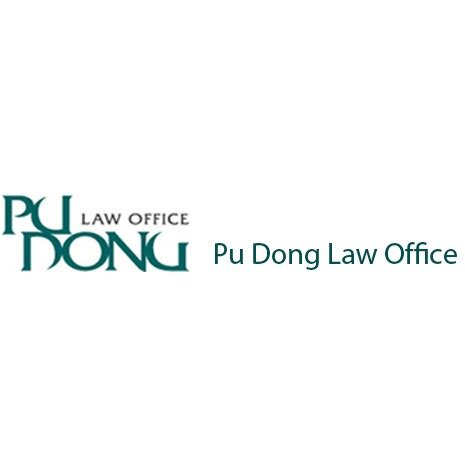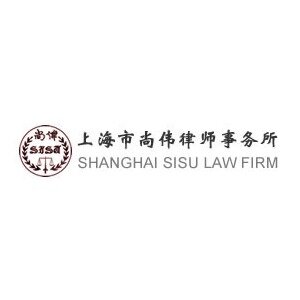Best State, Local, and Municipal Law Lawyers in Shanghai
Share your needs with us, get contacted by law firms.
Free. Takes 2 min.
List of the best lawyers in Shanghai, China
About State, Local, and Municipal Law in Shanghai, China
State, Local, and Municipal Law in Shanghai, China, refers to the legal framework governing the administration, operation, and regulatory responsibilities of local government entities. This area of law covers a wide range of topics including zoning, land use, public health and safety, local taxation, and administrative procedures. Shanghai, being one of China’s most bustling metropolises, operates within a unique blend of national laws and local regulations designed to accommodate its rapid economic growth and diverse population. Understanding these laws is essential for businesses, residents, and governmental bodies to ensure compliance and to effectively participate in local governance.
Why You May Need a Lawyer
Engaging a lawyer specializing in State, Local, and Municipal Law may be necessary in several scenarios. These include navigating zoning regulations when planning property development or business expansions, addressing disputes over local taxation or regulatory compliance, understanding the municipal administrative processes, or responding to local governmental actions affecting your property or business. Lawyers can also assist in public procurement processes, resolve issues related to permits or licenses granted by local agencies, and provide representation in administrative hearings.
Local Laws Overview
Several key aspects of local laws in Shanghai are particularly relevant to State, Local, and Municipal Law. These include zoning laws that dictate how land can be used or modified, environmental regulations aimed at promoting sustainability, local business regulations including licensing and compliance requirements, guidelines on public infrastructure, and residential guidelines concerning safety and community standards. Additionally, the municipal government of Shanghai has specific rules governing public transportation, emergency services, and public utilities, which are crucial for both residents and business operators.
Frequently Asked Questions
What are the primary responsibilities of local government entities in Shanghai?
Local government entities in Shanghai are responsible for urban planning and land use, public infrastructure management, environmental protection, enforcing local health and safety regulations, and providing essential municipal services like waste management and transit.
How can I find out about zoning laws affecting my property?
Zoning laws can be accessed through the Shanghai Bureau of Planning and Natural Resources, which provides detailed maps and regulatory guidelines. Consulting with a local attorney or engaging a planning consultant can also provide clarity and guidance on compliance.
What should I do if I receive a local government complaint against my business?
If you receive a complaint, it is crucial to understand the specifics of the allegation. Engaging a lawyer familiar with municipal laws and regulations will help you respond appropriately and ensure compliance with local codes.
Are there particular laws related to starting a business in Shanghai?
Yes, Shanghai has specific regulations that businesses must follow, including obtaining the necessary business licenses, adhering to local labor laws, environmental standards, and tax obligations, as well as industry-specific regulations.
What is the process for appealing a local government decision?
The appeal process typically involves filing a formal request with the appropriate government body or appealing directly to administrative courts. Legal representation can be essential to navigate these procedures effectively.
How does the Shanghai local government regulate public health and safety?
The Shanghai Health Commission and other local agencies set rules on health and safety, ranging from food safety standards to pandemic response measures, aiming to protect public well-being and promote sustainable practices.
Where can I report a violation of local ordinances?
Violations can typically be reported to local enforcement bodies or specific municipal departments such as the Housing and Urban-Rural Development Commission, or in some cases, to local police if infractions constitute criminal behavior.
What should I know about local taxes in Shanghai?
Shanghai imposes local taxes such as urban maintenance and construction tax, education surcharges, and vehicle usage taxes. Comprehending these obligations requires access to local tax regulations and often consulting a tax professional.
How are public utilities governed in Shanghai?
Public utilities like water, electricity, and sanitation in Shanghai are regulated and managed by specific municipal agencies accountable for the quality, pricing, and availability of such services as per the outlined governmental policies.
Is there a difference between national and local laws in China?
Yes, while national laws provide the overarching legal framework, local laws in Shanghai address region-specific needs and differ to reflect the city's unique characteristics and governance challenges.
Additional Resources
Several resources can be helpful for those seeking advice on State, Local, and Municipal Law in Shanghai. The Shanghai Municipal People's Government website provides access to a wide range of regulations and policy updates. Consulting local government agencies such as the Shanghai Urban Planning and Management Bureau can also yield detailed information about specific legal requirements. Professional legal associations and networks, like the Shanghai Bar Association, offer directories of qualified legal practitioners specializing in municipal law. Additionally, online portals and legal databases provide valuable insights and in-depth analysis, often accessible through legal service providers.
Next Steps
If you require legal assistance, start by identifying the specific legal issue you are facing. Consulting with a legal professional experienced in State, Local, and Municipal Law is advisable. Arrange an initial consultation to discuss your situation in detail. Prepare all relevant documents and information that can help your lawyer understand and address the legal matter. Additionally, keep abreast of any relevant public announcements, local policies, or legislative changes that might impact your case. Engaging legal counsel early can often lead to more efficient resolution and better outcomes, ensuring that you remain compliant with both local and national laws.
Lawzana helps you find the best lawyers and law firms in Shanghai through a curated and pre-screened list of qualified legal professionals. Our platform offers rankings and detailed profiles of attorneys and law firms, allowing you to compare based on practice areas, including State, Local, and Municipal Law, experience, and client feedback.
Each profile includes a description of the firm's areas of practice, client reviews, team members and partners, year of establishment, spoken languages, office locations, contact information, social media presence, and any published articles or resources. Most firms on our platform speak English and are experienced in both local and international legal matters.
Get a quote from top-rated law firms in Shanghai, China — quickly, securely, and without unnecessary hassle.
Disclaimer:
The information provided on this page is for general informational purposes only and does not constitute legal advice. While we strive to ensure the accuracy and relevance of the content, legal information may change over time, and interpretations of the law can vary. You should always consult with a qualified legal professional for advice specific to your situation.
We disclaim all liability for actions taken or not taken based on the content of this page. If you believe any information is incorrect or outdated, please contact us, and we will review and update it where appropriate.









